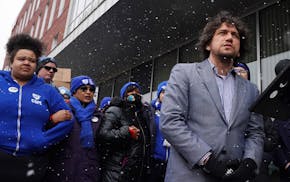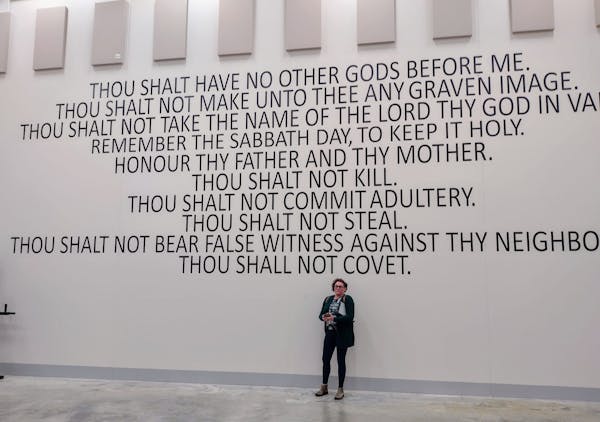The House approved an education bill Tuesday night that would take a modest step toward opening the teaching profession to mid-career professionals. The measure does not go as far, however, as some supporters of "alternative licensure," including Gov. Tim Pawlenty, would like.
The bill, which passed on an 86-47 vote, also mandates that teachers and principals be evaluated once a year, using such criteria as assessments by other teachers, subject content knowledge, and student academic growth and participation. That provision covers teachers who have already passed their three-year probationary period and are both tougher to fire and haphazardly evaluated throughout Minnesota.
"I think many Minnesotans would be surprised to know that, in this state, there are many teachers and principals who are rarely evaluated," said Rep. Carlos Mariani, DFL-St. Paul, who amended the bill to include such evaluations.
The alternative licensure provision for teachers will probably not pass muster with Pawlenty, who wants it made much easier for young people and mid-career professionals to move into teaching. The House must also reconcile its proposal with that of the Senate, which is closer to Pawlenty's.
Alternative licensure is important because Minnesota was turned down in its initial quest for $333 million in federal Race to the Top funds, in part because the state didn't adequately address the issue in its application. Pawlenty has said the state will not try for $175 million in second-round Race to the Top funds unless the Legislature enacts various K-12 changes, including his alternative licensure proposal.
The bill also would allow school districts to renew expiring tax levies without having to go back to their voters and keep them going until an improved economy frees up more state funding. There are some small provisions designed to help districts scrimp a few extra dollars, but, other than that, virtually no new money for cash-strapped schools. But apart from a $737,000 cut to the Department of Education, there aren't any school reductions in the bill either.
"This is a bill we would not be proud of most years," said Rep. Mindy Greiling, DFL-Roseville, chairwoman of the House K-12 Education Finance Division. "But in a year of financial struggle, it is a really good bill."
The bill also prohibits the state's short-term borrowing from school districts, which happened this spring, to plug day-to-day budget holes.
Norman Draper • 612-673-4547

Lakewood Cemetery in Minneapolis opens new Welcome Center
Man killed in domestic incident in Coon Rapids, Sheriff's Office says

U of M's interim president meets with pro-Palestinian protest leaders

Legendary boys hockey coach Randolph loses his job

